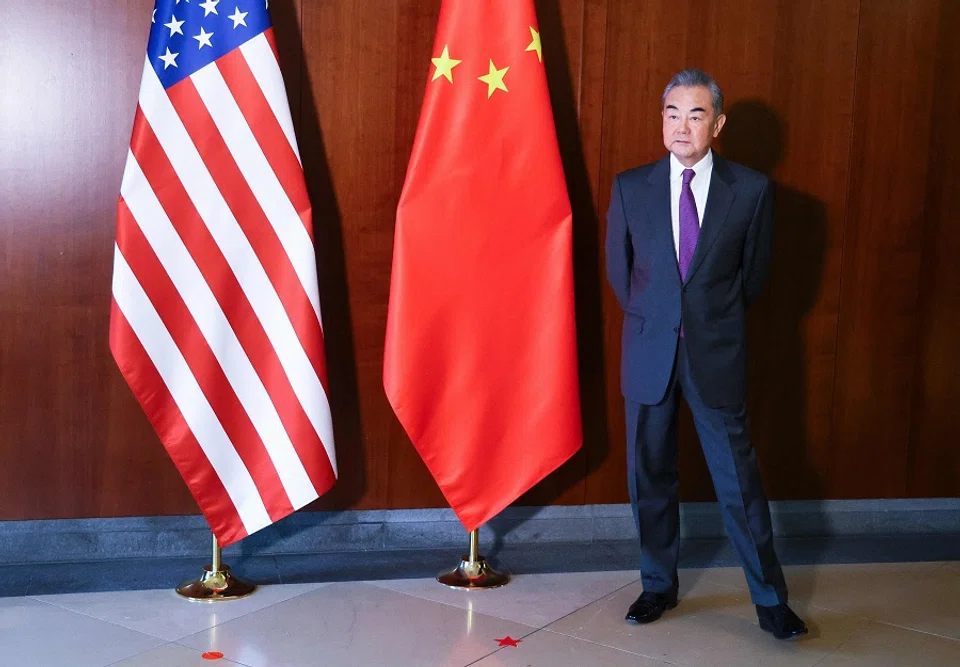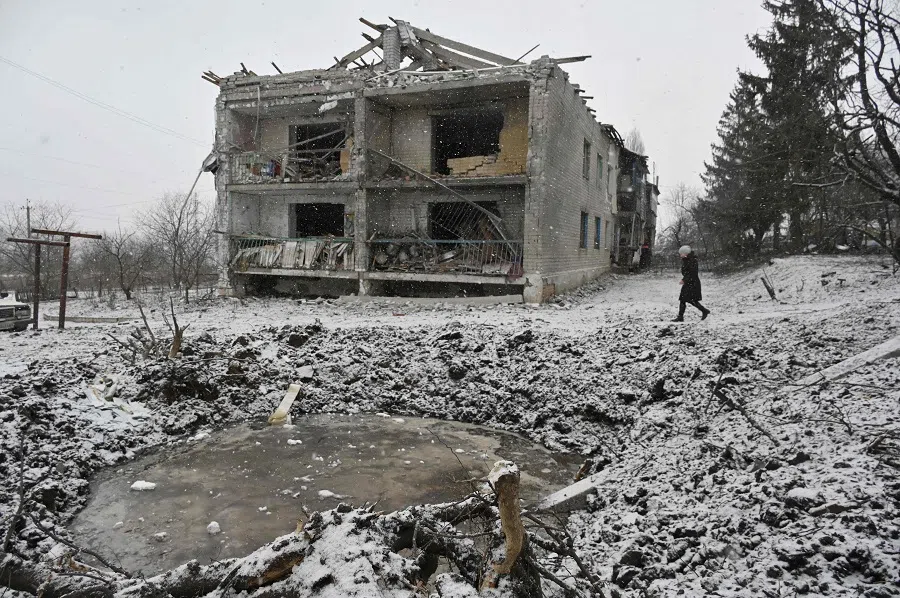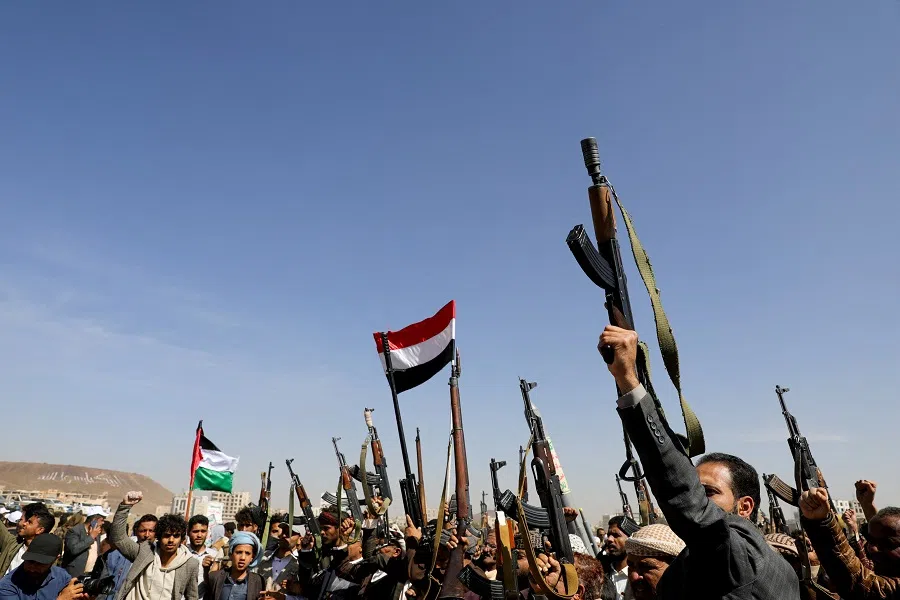Pragmatism shall rule in China's 2024 international relations playbook
Amid China's top diplomat Wang Yi's stern warnings against "de-sinicisation in the name of de-risking" at the recent Munich Security Conference, academic Alessandro Arduino asks: is China prepared to alter its international relations playbook?

At the Munich Security Conference on 17 February, China's top diplomat Wang Yi delivered a speech reaffirming China's role as a responsible major power and its commitment to peace, the UN-led system and economic globalisation.
Although Wang's public address suggests that China will maintain a balanced stance in 2024, the multiple bilateral meetings he had with his European and American counterparts indicate a deeper narrative.
Beijing appears inclined to mediate crises that directly impact its economy. In other words, while China's foreign policy for the upcoming year will largely adhere to the wait-and-see approach that has defined the Chinese foreign ministry's stance during recent crises, China is determined to safeguard its economic interests and advance its ambition to lead the global south.
China warns against 'de-China'
At the outset, Wang set clear boundaries on the Taiwan issue, saying that "the Taiwan question is one hundred percent China's internal matter. Taiwan has never been and will never be a country. This is a basic historical fact and an international consensus."
Wang then emphasised that Beijing's close ties with Moscow would not be used to support Russia's invasion of Ukraine. In light of recent events, following the West's increased sanctions against Russia in December, several major Chinese banks have ceased their dealings with Russia. They did so in a bid to steer clear of any accusations of aiding Russian banks that have already been disconnected from the SWIFT global financial messaging system. However, Beijing has shown no intention of restraining Russia's military actions.
Beijing can leverage its special relationship with Iran to pressure the Houthi militants in Yemen into halting their attacks on international commercial vessels in the Red Sea.

Wang also affirmed China's commitment to sustaining global trade despite internal economic challenges. This stance echoes the message delivered by Chinese Premier Li Qiang at the World Economic Forum in Davos in January.
At the same time, Wang cautioned the West against making the "historical mistake" of "de-sinicisation in the name of de-risking". In his meeting with the US Secretary of State Antony Blinken, he also said that "attempts to 'de-China' in the name of 'de-risking' and to build 'a small yard with high fences' to 'decouple from China' will ultimately backfire on the US".
In this respect, the litmus test for Zhongnanhai's willingness to keep globalisation afloat is already here. Beijing can leverage its special relationship with Iran to pressure the Houthi militants in Yemen into halting their attacks on international commercial vessels in the Red Sea. The issue was also broached during Wang's bilateral meeting with UK Foreign Secretary David Cameron, who urged China to use its influence on Iran to put an end to the Houthis' actions in the Red Sea.
... China in 2024 will adhere to its international relations playbook, employing special envoys to represent Beijing in hotspots.

So far, neither the military air strikes by the US and UK on Houthi drone installations in Yemen nor China's diplomatic efforts have deterred the militant group from targeting commercial vessels passing through the strategic Bab Al-Mandab chokepoint.
Is China prepared to go beyond its usual playbook?
Economic interests aside, while China's public rhetoric emphasises its commitment to being a reliable actor under the UN mandate, its approach to ongoing crises from Gaza to Ukraine is viewed in the West as somewhat restrained for a nation aspiring to global leadership. After Wang's discussions, it appears that China in 2024 will adhere to its international relations playbook, employing special envoys to represent Beijing in hotspots.
The prevailing diplomatic posture empowers Beijing to exploit the strategic advantage presented by the US involvement in the Gaza conflict, enabling it to lambast Washington for hypocrisy while furthering its own diplomatic entrenchment in the Middle East.

This strategy includes advocating for a two-state solution in the Gaza conflict to support the Palestinian cause, as well as facilitating dialogue on the Ukraine conflict while affirming that China's relationship with Moscow is grounded in a policy of "no-alliance, no-confrontation, and non-targeting of any third party".
... although Beijing professes commitments to the global south, in practice, it pragmatically manoeuvres through each crisis.
Pragmatism rules
In a nutshell, Wang's discussions in Munich point to a cautious start to Chinese foreign policy in 2024, although the increasing exposure to global insecurity abroad has already led to a gradual evolution of the Chinese decades-old principle of non-interference. China's steadfast adherence to non-interference serves its ambition to emerge as a beacon of the global south, setting it apart from what it considers the interventionist West.
However, Beijing has already demonstrated its pragmatism when international crises hit close to home. Encouraging the deployment of Chinese private security firms - which are viewed as mere commodities with lesser emphasis on the role of the state - to protect Chinese commercial vessels or Chinese infrastructures and personnel along the Belt and Road Initiative is a case in point.
In addition, although Beijing professes commitments to the global south, in practice, it pragmatically manoeuvres through each crisis. An instance of this approach is evident in the recent accreditation of the ambassador of the Islamic Emirate of Afghanistan in Beijing, although stopping short of formally recognising the Taliban government.

As the echoes of the Chinese top diplomat's caution against economic decoupling reverberate through the halls of the Munich Security Conference, concrete actions seem to be taking a backseat as all eyes turn to the incoming US presidential election.
From the ominous potential of Russia's escalation of the Ukrainian conflict enveloping Europe to China's aim of achieving 5% GDP growth in 2024, the looming possibility of Trump's return to the helm of US foreign policy threatens to shake up the entire strategic landscape.





